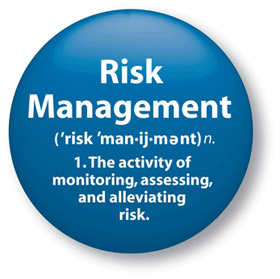For fleet managers there are essentially three main points to consider when assessing risks posed to their business fleet operations: In no specific order these include the fleet driver(s), the fleet vehicles and the journey these fleet motors undertake.
Fleet Drivers
 For drivers that will be driving any of the company motor fleet vehicles it is essential that the fleet driver is fit, competent and also authorised to drive the fleet motors. Businesses should have in place a mechanism for strict vetting for all new fleet drivers which should also include checking of the driver licence checks. It is a requirement of the Road Traffic Act 1988 that you (the Company) are responsible for ensuring that the drivers of any vehicles you own and have motor fleet insurance are properly licensed. The actual person responsible for driver checking must also be competent so that they know what the checks entail and what to look out for.
For drivers that will be driving any of the company motor fleet vehicles it is essential that the fleet driver is fit, competent and also authorised to drive the fleet motors. Businesses should have in place a mechanism for strict vetting for all new fleet drivers which should also include checking of the driver licence checks. It is a requirement of the Road Traffic Act 1988 that you (the Company) are responsible for ensuring that the drivers of any vehicles you own and have motor fleet insurance are properly licensed. The actual person responsible for driver checking must also be competent so that they know what the checks entail and what to look out for.
In addition to motor fleet driver check, there should be a written policy in place which outlines the responsibilities of company fleet drivers. This information should be included within the Companies Drivers Handbook and all new drivers must be given a copy and must be verse in its contents. All driver policies and procedures should be reviewed periodically and updated as and when things change. A periodic driver assessment should also be in place to keep up to date on any new information.
Fleet Vehicles
Managing a company motor fleet operation can at best be challenging even for small mini fleet operations with a few cars and vans this can be a painful task. The company fleet vehicles must be suitable for the intended task to ensure that the safety of the public and the drivers is not compromised in form.
The vehicle used must meet the demand of the job at hand and also it should be suitable to the driver. A typical example is; sales personnel who is over 6 foot and 6 inches tall, that drives over 25,000 miles a year as part of their job, a small town car would not be comfortable. This could potentially after a while cause long term injury to the driver.
It is the duty of the Company to make sure that all the fleet motor vehicles comply with the necessary legislations. The vehicles are inspected on a regular basis and are serviced on recommended manufacture service intervals. Any legal documents are up to date and accurate such as motor fleet insurance, MOT certificate and Road Tax licence. Simple checks such as tyre pressure, oil level and water levels can easily be checked by the drivers after an initial training. By implementing a reporting system these checks can easily be monitored to ensure that they have been carried out.
Fleet Journey
The actual journey undertaken by a company driver is also an important factor in managing the overall fleet risk assessment. Most journeys undertaken by a company fleet driver must have advance planning with various factors taken into account such as rest breaks and regulation requirements. The route should also be planned to avoid low bridges for Lorries and also check the road traffic report prior to the journey.
Motor Fleet Risk management is not only part of health and safety legislation, it makes good business sense too. A well run fleet can potentially save a company thousands of pounds a year with smoother business operations and a happier staff morale.
Active Insurance is one of the UK’s leading brokers with specialist knowledge in all types of fleet insurance from company car, to vans and haulage fleets. For a fleet quotation please contact our commercial department on 0844 477 9805.

Comments are closed.